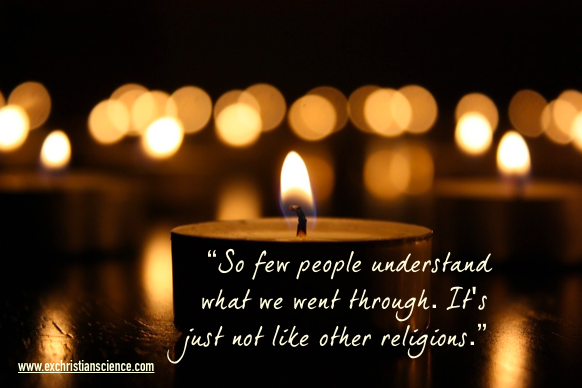The Ex-Christian Scientist is an informal community of former Christian Scientists who strive to assist those questioning their commitment to Christian Science as well as those who have already left it. We have a sincere desire to help those who are questioning Christian Science to decide if there is a better path for themselves–and to help those who have already left it to feel part of a larger community.
Books & Media Recommendations
Health & Therapy
- Finding a Therapist
- How to talk to a Dr about your CS Past
- Helping Family still in CS
- Vaccines – How to get vaccinated
- Other Therapy Resources
- Other Health Resources






